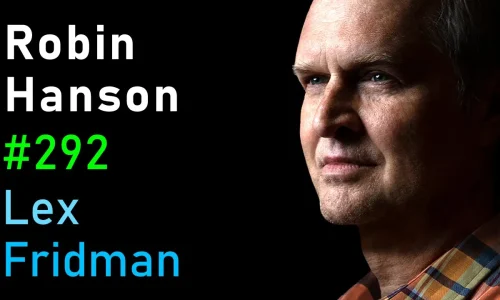See all Lex Fridman transcripts on Youtube

Robin Hanson: Alien Civilizations, UFOs, and the Future of Humanity | Lex Fridman Podcast #292
4 hours 13 minutes 30 seconds
🇬🇧 English

Omnivision Solutions Ltd
- Getting Started
- Create Transcript
- Pricing
- FAQs
- Recent Transcriptions
- Roadmap